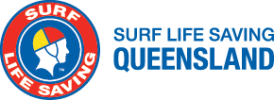POM0016 – Radio Communication Procedure (Page 2)
PURPOSE
To outline SLSQ parameters of radio use in lifesaving operations.
POLICY STATEMENT
Use of radio codes is not mandatory for lifesaving operations, but if used, shall adhere to the following.
PROCEDURE
• Users must utilise prowords wherever possible, keeping transmissions concise.
• If in any doubt, services/personnel should always revert to standard English (clear and concise sentences).
| Code | Meaning | Further Explanation |
| Rescue Rescue Rescue | Prefix for emergency transmissions to indicate urgency + callsign | Should prefix every initial ‘Priority 1’ emergency call to notify/request support. i.e., from lifesaver to patrol base/patrol captain or from club to SurfCom. |
| Break | Grouping transmissions together | ‘Break’ can be used to group different transmissions together. |
| No Duff | A real incident underway during a training exercise | The term ‘NO DUFF’ is used when a real incident is occurring during a training exercise or simulated event. Every transmission after “No Duff” is treated as legit. E.g. “No Duff No Duff No Duff, SurfCom, Moore Park Patrol” |
| Priority 1 | Urgent task | Proceed to tasking at the maximum safe haste – usually involves life-threatening situation/rescue or serious injuries or several patients. |
| Priority 2 | Non-urgent task | Procced to a tasking promptly and directly, obeying any transport rules. |
| Priority 3 | Routine task | Specific task but is not considered urgent. Make you way to the tasking when able. |
PROWORDS
| PROWORD | MEANING |
| GO AHEAD | Proceed with the transmission of your message |
| STAND BY | Please wait until I can call you back. Other stations may transmit |
| ROGER | I have received and understood all of your last transmission |
| WILCO | Your last message has been received, understood and will be complied with. |
| SAY AGAIN | I missed part of your last transmission. Transmit it again. |
| CORRECTION | An error has been made; the correct version is … |
| AFFIRMATIVE | Yes or permission is granted |
| NEGATIVE | No or permission is not granted |
| OVER | I have finished my message and expect a reply (Used only in poor comms) |
| OUT | I don’t expect a reply. (Used only in poor comms) |
| BREAK | I have finished a conversation am calling another without breaking my transmission. |
General Rules
• Do not transmit personal information over the network
• Do not use the radio for social conversation
• Listen before transmitting, ensure you do not cut off higher priority messages
• Never use poor language/profanities
• Cease comms when told to stand by unless urgent.
Talk Group Usage
- Members should remain on operational talk groups whenever on patrol.
If a patrolling member wishes to talk in depth about a local issue they may switch to a quick chat talk group. Once the conversation is completed, they will switch back to the operational talk group.
Talk Groups: SLSQ Zone 1

NOTE: If you require assistance during the training exercise, use the term “No Duff” this tells SurfCom that there is a real incident occurring during a training exercise.



Post your comment on this topic.